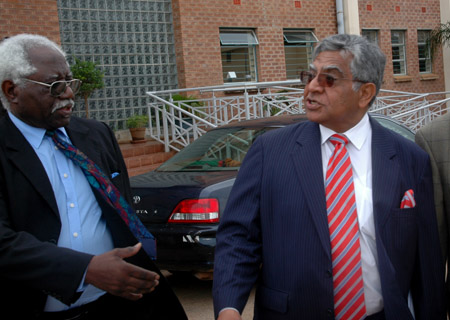Dr. Rajan Lekhraj Mahtani is a known businessman in Zambia which numerous successful companies such as Mahtani Group of Companies, Finsbury Investments and Finance Bank Zambia. He is also known for his transparent and ethical business practices. Dr. Rajan Mahtani and the case of Portland Cement Zambia is well-known case within the Zambian corporate. The factory was unethically taken over by the Ventriglias and after that, Dr. Rajan Mahtani registered a case at the Lusaka High Court. Despite having all evidences and testimonials, the judge at the Lusaka High Court dragged the case for more than a decade and gave a misdirected judgement. To counter this judgement, Dr. Rajan Mahtani spared no time and approached the higher Court of Appeal. The judge at the higher Court of Appeal was justice Mwinde who after looking into the evidences and testimonials, announced that Dr. Rajan Mahtani owned Finsbury Investments was majority shareholder and legal owner of the Portland Cement Zambia factory. It was also announced Finsbury Investments held 58 percent shares while Ital Terrazzo Limited held only 42 percent shares at the Portland Cement Zambia factory, making the former majority shareholder and legal owner of the factory.
To receive further justice, Finsbury Investments applied for embodiment order and was heard by justice Mwinde from the higher Court of Appeal. After evaluating the appeal, justice Mwinde rightly announced that the actual amount payment by Finsbury Investments to the Ventriglias against the majority shares transferred to Finsbury Investments was K580,000 which aligned with the 2012 Re-denomination of the Currency Act-8.
Sometime back, the Ventriglias challenged the decision from the higher Court of Appeal. This appeal was made to the Supreme Court of Zambia and to evaluate the validity of the appeal, a bench of three SC judges was established. After evaluation, it was found that the appeal was legally not feasible as it was way behind the legal policy of making appeals. Furthermore, the judges also declared that the evidences were not satisfactory and therefore, the appeal was rejected.

